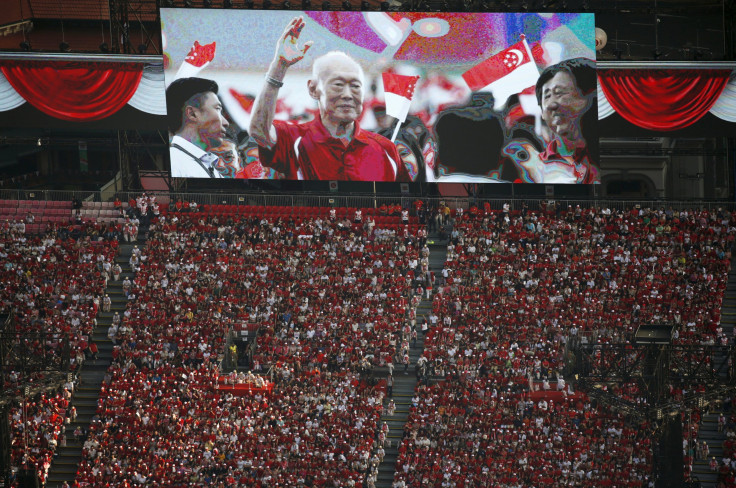Lee Kuan Yew Considered Euthanasia: Former Singapore Leader Struggled With Wife's Death, Says Daughter

The first prime minister of Singapore and one of the country's founding leaders asked doctors about the possibility of euthanasia in his final years after the death of his wife, his daughter revealed Monday. Lee Kuan Yew, who died March 23, struggled after the death of his wife, according to an opinion piece written by his daughter, Dr. Lee Wei Ling, in The Straits Times Monday for the 50th anniversary of the nation's independence from Malaysia.
After the death of Kwa Geok Choo, the Singaporean leader's wife of 63 years, died in 2010, the nation's first prime minister found the last few years of his life to be "a sad and difficult time," his daughter wrote, according to Agence-France-Presse. While he served as a member of Singapore's parliament from the Tanjong Pagar district since 2011, Lee's final years were marred by poor health, including severe pneumonia and cardiac dysrhythmia.
"He raised the topic of euthanasia with his doctors, and they told him that was illegal in Singapore. I also told him it was illegal for me to help him to do so elsewhere," his daughter wrote, reported AFP.
A hush falls as the tribute to #Singapore's founding father Lee Kuan Yew begins http://t.co/SxnrmnVRj6 pic.twitter.com/zYI43rpT6s
— The Straits Times (@STcom) August 9, 2015Lee was educated at Cambridge University, took office in 1959 after the end of British rule and managed Singapore's split from Malaysia in 1965. Widely celebrated for making the city-state one of the world's wealthiest nations, Lee has also been criticized for implementing strict moral laws and corporal punishment during his term, which ended in 1990. His eldest child, Lee Hsien Loong, has been Singapore's prime minister since 2004.
Lee had previously discussed his desire for a quick and painless death in his book, "One Man's View of the World," which was published in 2013. Lee had also signed an Advance Medical Directive, a legal document instructing doctors to avoid using any treatment to prolong his life if he was unconscious.
"There is an end to everything and I want mine to come as quickly and painlessly as possible, not with me incapacitated, half in coma in bed and with a tube going into my nostrils and down into my stomach," Lee wrote in his book, reported the South China Morning Post.
© Copyright IBTimes 2025. All rights reserved.






















